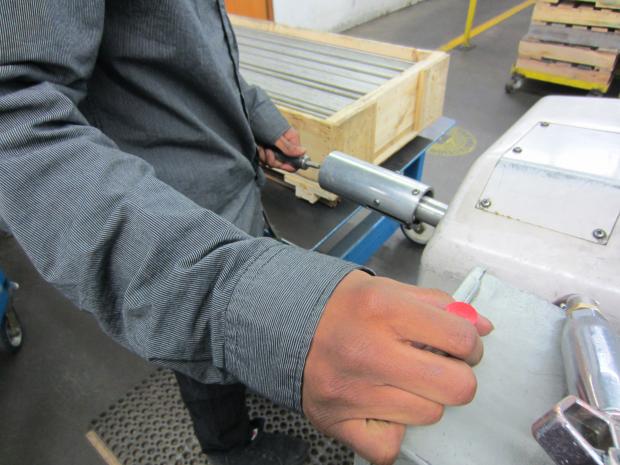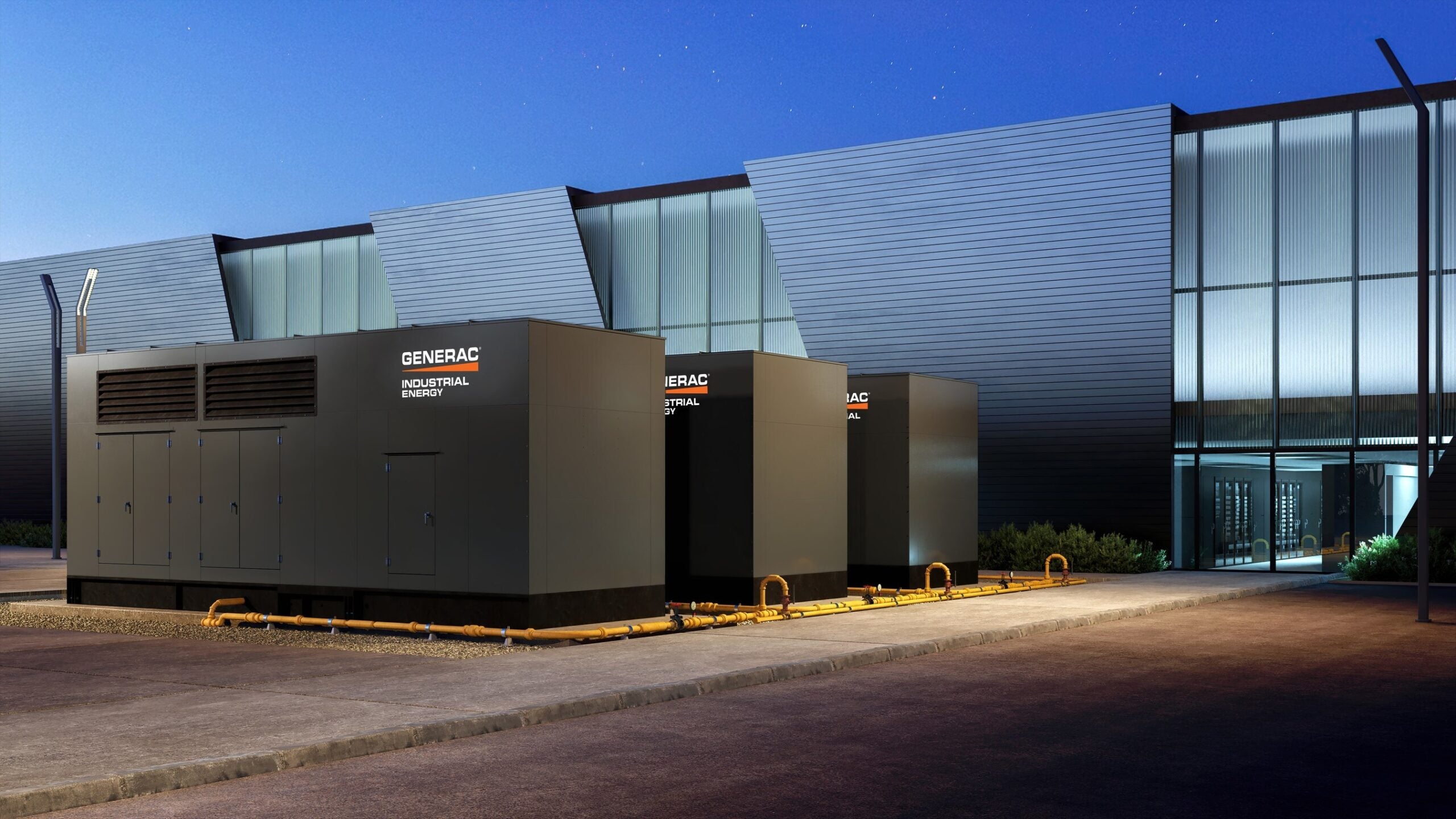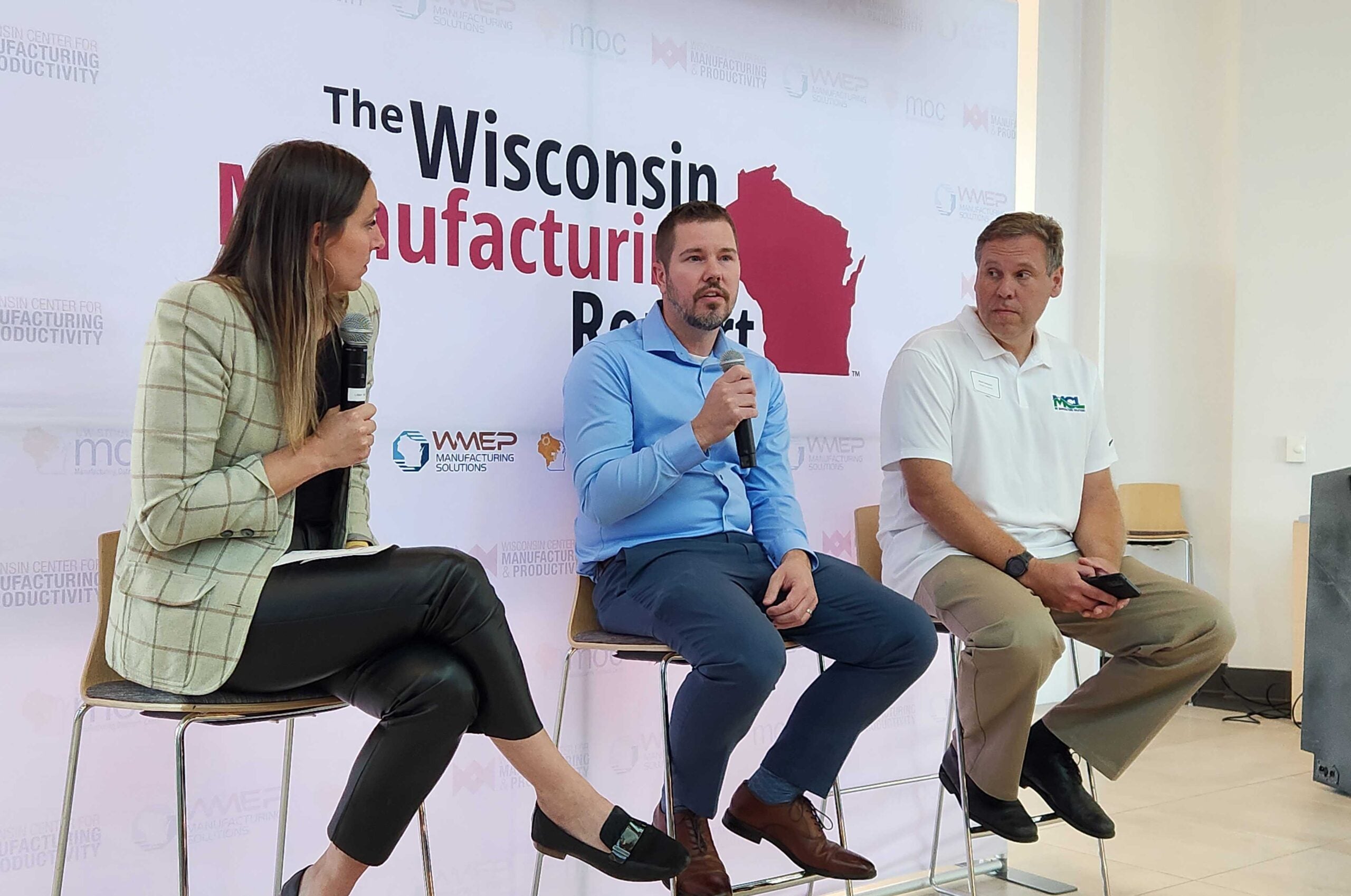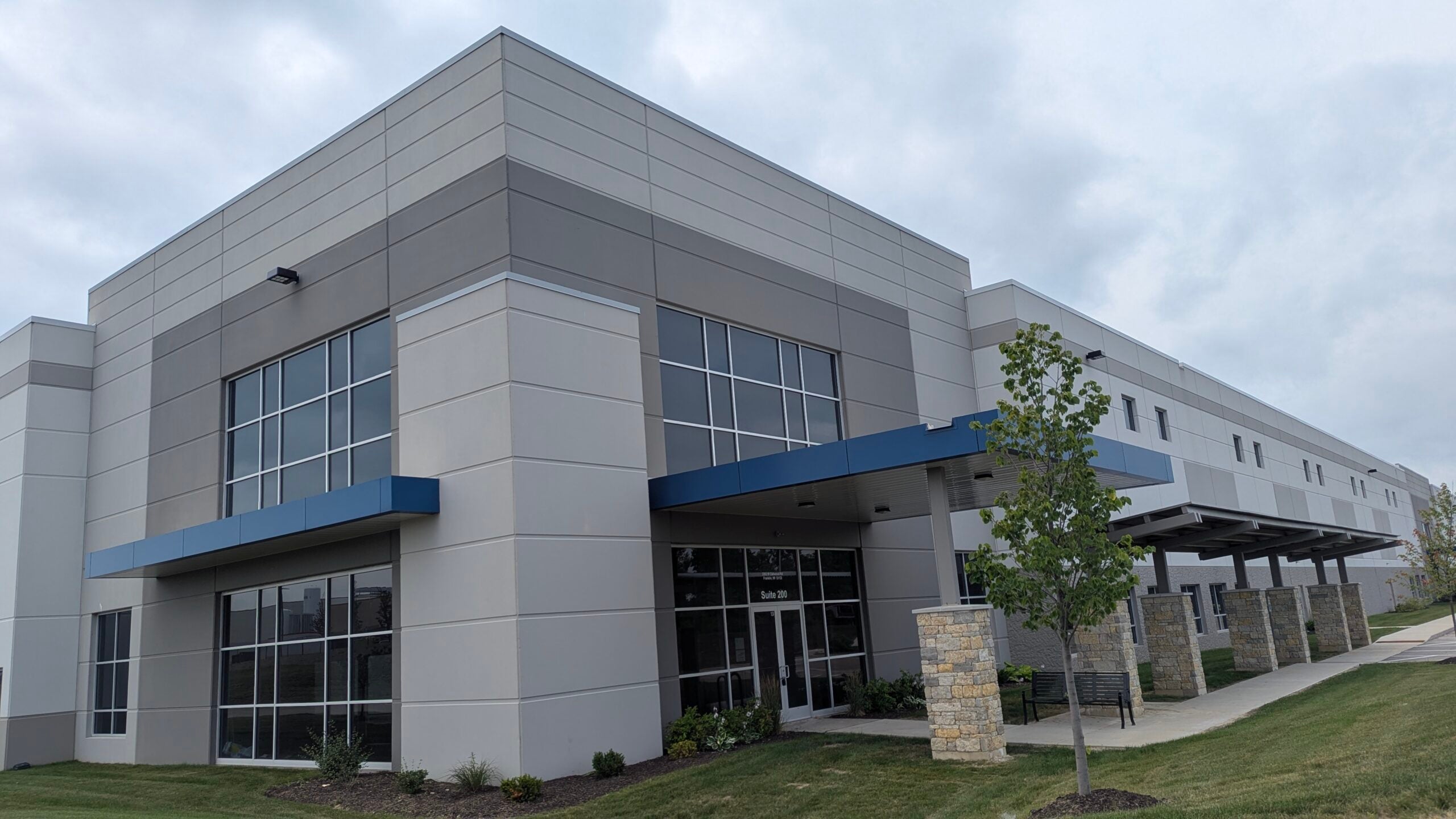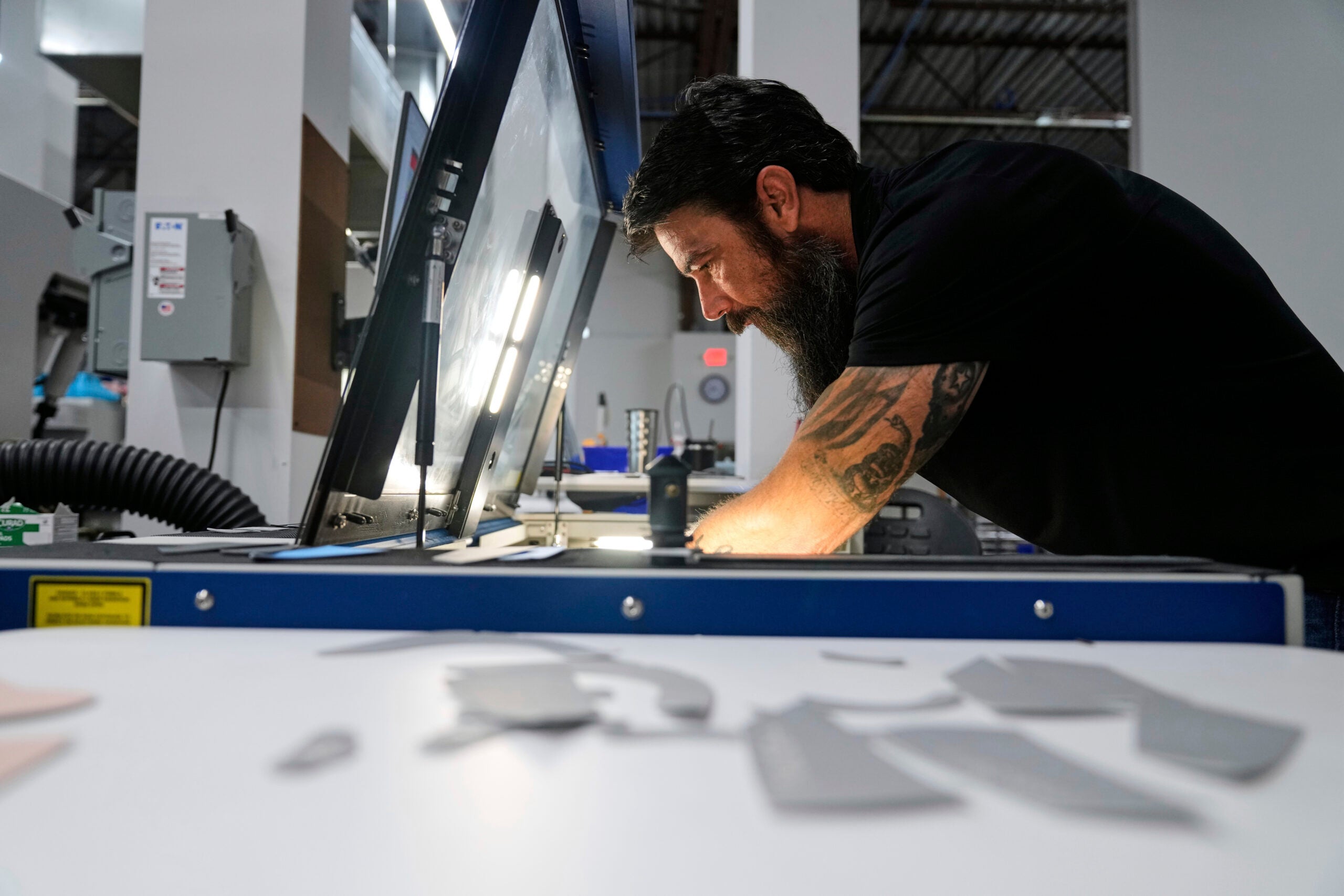Jahmumia Starks is the kind of worker any company would love to see walk through the door: He’s 18 years old, enthusiastic, and has real-world experience operating high-tech machinery at a contract manufacturer in Madison.
Starks, who also attends high school at Prairie Phoenix Academy in Sun Prairie, was drawn to manufacturing because of his passion for skateboarding.
“The bottom of the skateboard, there’s trucks and there’s metal,” he said. “The whole time I was growing up I was skateboarding, and wondering how they made it.”
News with a little more humanity
WPR’s “Wisconsin Today” newsletter keeps you connected to the state you love without feeling overwhelmed. No paywall. No agenda. No corporate filter.
People like Starks have lately become highly sought after by manufacturers in Wisconsin. With a workforce that’s aging rapidly, businesses are trying to find ways to reach out to young people and bring them into the industry.
Production Machine & Enterprises Corp., where Starks works, is one such business. Chuck Pitzlin, who manages operations for the company, said Production Machine was set up with Starks through something called Middle College — a program that combines high school academics, technical college courses, and work experience to prepare low-income students in south-central Wisconsin for careers in manufacturing and health care. Pitzlin said that the Middle College program is a great way to bring young people like Starks into manufacturing.
“There’s a shortage of qualified people and people coming out of tech school programs, so we do try to work with the tech school,” he said. “We’ve actually worked with high schools and done tours and things like that to try to generate an interest in manufacturing, just to raise an awareness.”
The “raising of awareness” has taken on added importance and urgency for the manufacturing sector as more workers are reach retirement age. National data from the Current Population Survey shows that between 2003 and 2013, the average age of a worker in the manufacturing sector rose from 41.9 years old to 44.9 years old. Over the same time span, the number of workers under 35 in the industry fell about 19 percent, while the number of workers over 55 increased more than 39 percent.
U.S. MANUFACTURING WORKFORCE BY AGE, 2003 vs. 2013
MEDIAN AGE OF U.S. MANUFACTURING WORKFORCE, 2003-2013:
“Dirty, Dingy Factories”
Joe Brown, who heads talent development at the Wisconsin Manufacturing Extension Partnership (WMEP), said that employers need to focus on changing the way the industry is perceived. Brown said there’s a myth that says manufacturing is dirty, behind the times, and headed offshore. He said that young people “don’t see manufacturing in the true light that it really is – a dynamic environment.”
Angela Buchenauer, a counselor with the Green Bay Area Public School District, agrees that negative perceptions of manufacturing are common among the students she works with. Moreover, she sees another perception that may be making things problematic for manufacturers: Students see four-year degrees, not technical degrees, as being the best route for finding a successful career.
Buchenauer thinks these perceptions often stem not just from schools, but from parents: “They have that mindset of, ‘My child has to go to a four-year college.’”
Brown said companies are realizing they have to get to younger people sooner — before they enter the workforce.
“They’re accessing the kids at a much younger age than what they ever have,” he said. “The old model for manufacturers was fill the résumé pipeline as full as possible and then select from there. It’s not the reality anymore. The reality is that you have to compete for the kids; you have to get to them at a younger age.”
In order to reach out to young people, said Brown, companies have been doing things like the state’s Manufacturing Month, partnering with high schools, or holding tours for young people and their parents. He also said that the companies “that get it,” look for students that fit into their company’s “culture” by giving them aptitude and personality tests, and focus less on a potential employee’s technical skills.
“Being a cultural fit is more important that actually having skills themselves because of the high turnover,” said Brown. “Millennials tend to not be loyal — they don’t see it as our parents saw it, that you’re going to work 30 to 40 years someplace.”
Jahmumiah Starks operating a CNC turning center at his part-time job in Madison.
Changing Perceptions
Ted Bonde, a technology education instructor at New Holstein high school, notes that a lot of young people think manufacturing career only leads to “dead end jobs.” He thinks that companies need to bust that myth when they do their outreach.
“Let’s say there’s a president, a CEO of a company, who has actually worked his way up to there,” said Bonde. “If he could be the speaker in a school … someone who’s actually succeeded by starting on the bottom — that would be an eye-opener.”
One of Bonde’s students is Nick Preston, a senior at who participates in the state’s youth apprenticeship program, working for a manufacturer in Kiel. He agrees that everybody, from CEOs to plant managers, needs to be part of the recruiting effort.
“I think if you can get it into the schools, make the kids know about it,” said Preston. “Make the principal, teachers, the counselors … present the opportunity to the kids and give them what it actually is. Don’t make it seem like it’s that 1950 smoky, dirty shop.”
Preston says he isn’t sure what he’s going to do when he graduates from high school. But he says he’s glad to have manufacturing experience on his résumé and college credits in manufacturing.
Jahmumia Starks, however, is more certain of his future in manufacturing: His dream is to one day own a factory that makes skateboard parts.
Wisconsin Public Radio, © Copyright 2026, Board of Regents of the University of Wisconsin System and Wisconsin Educational Communications Board.
